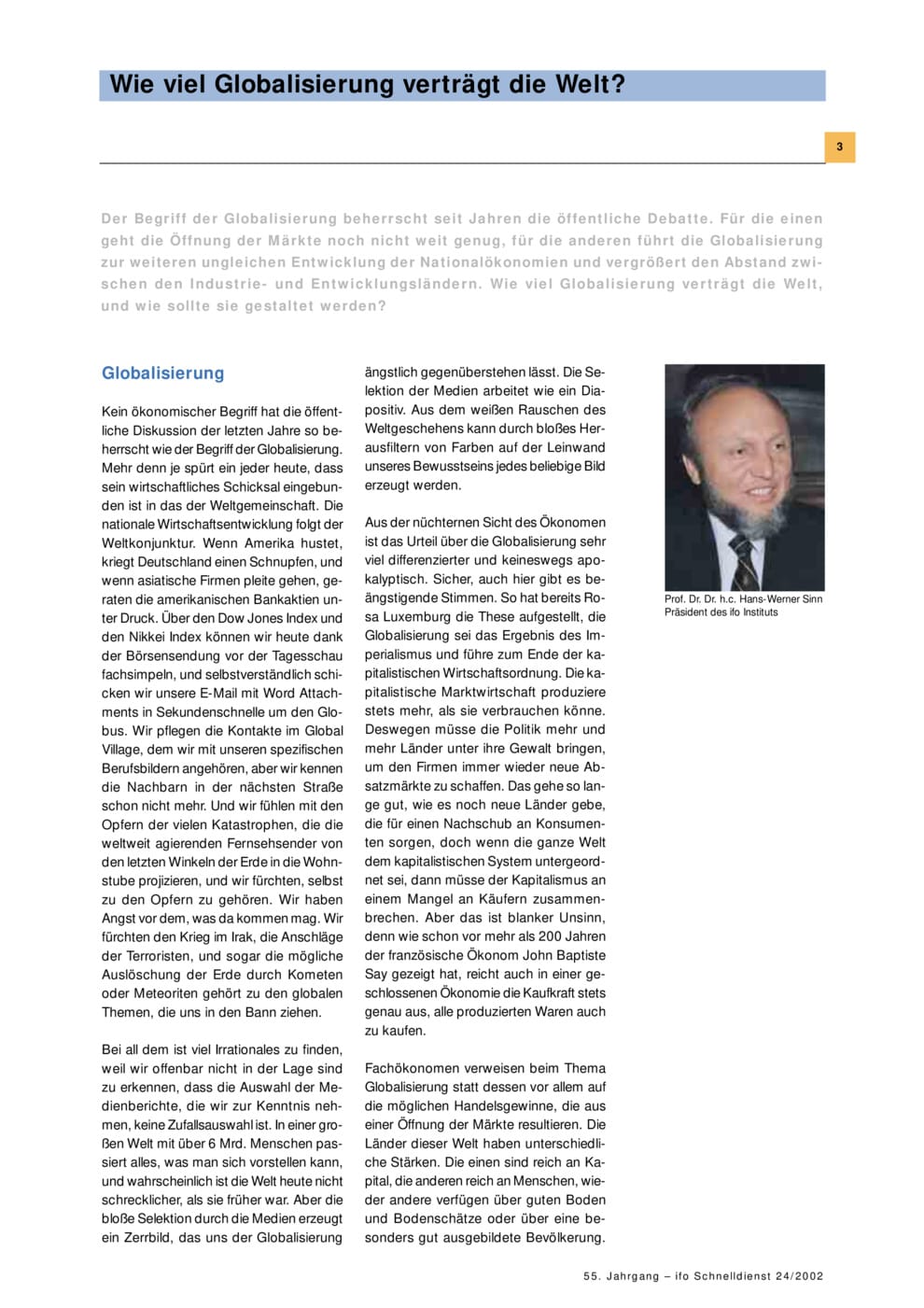How much globalisation can the world bear?
ifo Institut für Wirtschaftsforschung, München, 2002
ifo Schnelldienst, 2002, 55, Nr. 24, 3-16

The term globalisation has dominated the public debate for years. For some the opening of markets has not gone far enough, for others globalisation has led to further inequalities between economies and has enlarged the distance between industrial and developing countries. Prof. Hans-Werner Sinn discusses the economic forces that have been released in the globalisation process. In the opinion of Prof. Michael Rauscher, Rostock University, globalisation will undoubtedly continue to progress, but it does not need international co-ordination. On the contrary, in a globalised world there are good arguments for the subsidiarity principle: Problems should be dealt with and solved at the lowest possible level. Many problems that arise in connection with globalisation can be managed at the national level. Also for Prof. Karl Wohlmuth, Bremen University, the structure of globalisation is the determining issue. What is important for him is "the extent to which there is a willingness to adapt national and international conditions to the speed of globalisation". For Prof. Rainer Bartel, Linz University, globalisation must be "efficient" and "sustainable" but "scientists and politicians are still not ready for this".